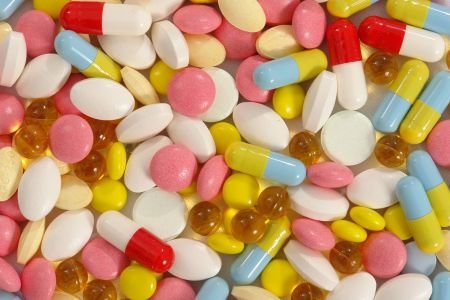
The report looks at the treatment of Paroxysmal Nocturnal Hemoglobinuria, Idiopathic Thrombocytopenic Purpura, Myelodysplastic Syndrome, Myelofibrosis and Polycythemia Vera, acquired orphan blood diseases that result in a sufferer's body not producing blo
Singapore: Physicians treating rare blood disorders now have more drug treatments to choose from to treat patients. This in turn allows patients to avoid demanding surgeries and chemotherapy, while filling the pockets of pharmaceutical companies who can charge big money for the treatments in these untapped markets, states a new report by healthcare experts GBI Research.
The new report looks at the treatment of Paroxysmal Nocturnal Hemoglobinuria (PNH), Idiopathic Thrombocytopenic Purpura (ITP), Myelodysplastic Syndrome (MDS), Myelofibrosis (MF) and Polycythemia Vera (PV), acquired orphan blood diseases that result in a sufferer's body not producing blood correctly. These diseases have serious risks, and treatments are often limited to symptom management, and improvement of quality of life, with risky surgical procedures offering the only alternative. This bleak outlook makes the orphan disease market a great opportunity for drug discovery and development, as patient populations are small but untapped.
Soliris (eculizumab) is a perfect example of a successful orphan blood disease drug. PNH is a potentially life-threatening blood disease, characterised by severe anemia caused by the destruction of red blood cells in the bloodstream. Bone marrow transplants can provide a cure, but the high risk procedure is suitable for only a few patients. Treatment methods include blood transfusions, iron therapy, and growth factors, but monoclonal antibody Soliris dominates the PNH treatment market, and holds the title of the most expensive drug in the world. The drug reduces the activity of the immune system, reducing hemolysis and risk of thrombosis associated with PNH market. Due to the market dominance of Soliris, the PNH pipeline is very weak, so Alexion Pharmaceuticals look set to continue to benefit from this high pricing.
The PNH treatment market in the US, the top five EU countries (the UK, France, Germany, Italy and Spain), and Japan is expected to grow at a Compound Annual Growth Rate (CAGR) of 4 percent over the 2011-2019 period to US$1,164m by 2019.
MF is another acquired orphan blood disease, and success in the drug pipeline has rewarded Incyte Corporation handsomely. MF is a myeloproliferative disease which sees patient's bone marrow get replaced by collagen fibrosis, impairing the individual's ability to produce new blood cells. Stem cell transplantation is the only curative treatment available for MF sufferers, but this procedure is highly risky, requires a young patient and suitable donor, and often only leads to remission rather than a cure. Treatments to alleviate disease symptoms include blood transfusions, androgen therapy, surgery, chemotherapy and radiation therapy, but these gruelling therapies have debilitating side effects.
Jakafi (ruxolitinib) is a JAK inhibitor which works to target the genes believed to cause MF, approved by the FDA in November 2011 for the treatment of intermediate or high-risk MF, and is perhaps set to be a future blockbuster drug. Kimberley Carter, Associate Analyst at GBI Research states: "The exceptional performance of Soliris has shown that there is a great opportunity for pharma companies in the development of novel, curative drugs for orphan blood disorders. Many patients with these diseases rely on generic drugs that often come with debilitating side effects and may require a high level of commitment from the patient, such as regular hospital treatments. Therefore, the unmet needs of these patients are very high and the right therapy would perform very well."
Other drugs with the same mechanism of action are currently in the development pipeline, as other pharmaceutical companies fight to compete for Jakafi's market share, and as a result of this healthy competition, the market for pharmaceutical treatment for MF is expected to grow at a CAGR of 34% throughout 2011-2019 to reach a value of US$1,127m by 2019.




